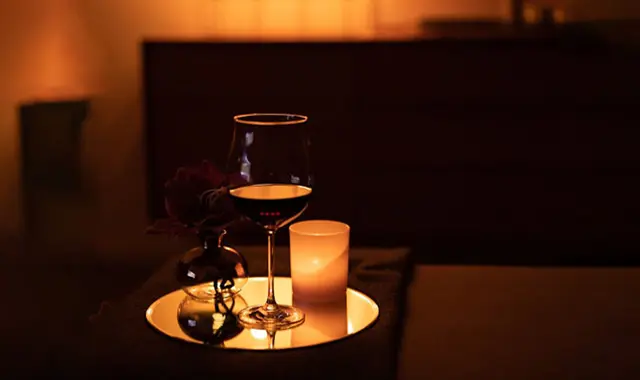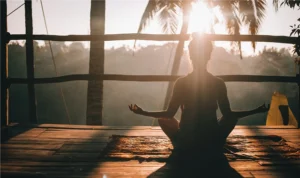If someone had told me in my early twenties that one day I’d look forward to spending Friday nights alone, I probably would have laughed. Fridays were the reward after a long workweek—a weekly promise of plans, people and places. Staying in? That usually meant something had gone wrong, someone cancelled, money was tight, or I was simply too tired to be fun.
But now, in my thirties, I see those quiet Friday nights not as a consolation prize, but as something to cherish. In fact, Friday nights alone in your 30s can feel like a small act of rebellion—in the best way.
So, how did that shift happen?
This post isn’t about pretending I never feel lonely—because I do sometimes. It’s about how I’ve redefined what it means to spend time alone and why Friday nights, once reserved for external excitement, have become a space for internal peace.
The Pressure of “Weekend Worthiness” in Our 20s
In our twenties, especially in a world where social media documents our every move, weekends often came with invisible pressure—to be out, to be busy, to be seen. Friday nights were like the opening scene of a movie—you had to start strong.
Psychologically, this ties into what’s called social comparison theory—our tendency to evaluate our worth based on how we stack up against others. Like when friends were posting bar selfies, date nights or group dinner, it was easy to feel like staying home was a failure. Even when I wanted to stay in, I’d wrestle with being FOMO (fear of missing out), worried that I was wasting my youth or becoming irrelevant—especially when you keep turning down invitations and they just stop coming.
But stepping into my thirties gave me a different perspective on what it actually means. Friday nights alone in your 30s are less about missing out and more about opting into what genuinely feels food. The truth is, social lives ebb and flow. What feels essential in one season of life might feel unnecessary in another. And that’s okay.
Learning to Love My Own Company
The shift didn’t happen overnight. It started with small moments—lighting a candle on a Friday night just because, putting on an old film I’d been meaning to watch, cooking a tasty dinner for one like I was hosting a dinner party just for me.
What surprised me most was this—the more time I spent with myself, the more I learned to like myself.
There’s often a misunderstanding around solitude and loneliness. Loneliness is the pain of being alone when you crave connection. Solitude, on the other hand, is the pleasure of being alone when it’s a choice. The same setting—a quiet apartment on a Friday night—can feel completely different depending on your mindset.
I stopped seeing alone time as a gap to fill and started seeing it as a gift. In solitude, I wasn’t just escaping noise—I was creating space. Space to think, feel, decompress, and simply be.
Creating Rituals That Feel Like Me
One of the most powerful shifts was replacing old Friday night habits with new rituals.
Instead of scrolling through Instagram and feeling left out, I started:
- Watching comfort shows I’d seen a million times—not because they were “cool”, but because they felt familiar and safe.
- Making my favourite takeout-style dinner at home—the kind I’d usually overpay for, now made with care and without hurting the wallet.
- Thought dumping in my iPad with a glass of wine—reflecting on the week with intention instead of letting it blur into the next.
- Doing simple house chores—laundry, tidying, organising—so I wouldn’t spend the whole weekend catching up before Monday.
These little acts of care reminded me that joy doesn’t always need to be loud or shared. Sometimes, it’s soft and quiet and entirely your own.
Friday Nights Alone in Your 30s Hit Different—Here’s Why
Your thirties have a way of refining your values. Not because you suddenly have everything figure out (spoiler: you don’t), but because your start realising what really drains or energises you.
In my twenties, I often said yes out of guilt or fear. A friends birthday dinner I didn’t want to go to, a date I wasn’t excited about, a bar night when I was exhausted. Now, I’m learning to be more honest—with others, and with myself. And that honesty has led to more fulfilling choices.
Friday nights alone aren’t about isolating or avoiding people. They are about choosing rest, stillness and authenticity. And that choice feels more empowered now than it ever did before.
The Unexpected Benefits of Alone Time
Spending regular time alone—especially on “high pressure” social nights—has had ripple effects in other areas of my life:
- Better emotional regulations: I process my emotions more clearly without constant distractions.
- Made space for creativity: Quiet time fuels my writing, problem solving, and self-reflections.
- Deeper self awareness: I know what I want, what I value, and what kind of energy I want around me.
- Stronger boundaries: I’ve learned to say no without guilt and yes with intention.
And whilst I’m definitely not floating through life with monk-like focus, I have noticed that being alone—with fewer external inputs—gives my mind a little more room. Sometimes leads to clarity. Sometimes it just leads to quiet. Both have their place.
It’s not just “me time”—it’s making space—even when you don’t know exactly what will fill it.
But What About Loneliness?
Of course, it’s not all sunshine and candles. There are still moments when I crave company, when I miss the buzz of a group text or wish someone were sharing the couch with me. That’s human.
But the difference is: I learn to not panic in those moments. I don’t see them as a reflection of something wrong with me. I sit with them, acknowledge them, and reach out when I want to connect. Being comfortable alone has made my relationships richer—not because I need less from others, but because I bring a fuller version of myself to the table.
Choosing What Feeds You
Friday nights alone in your 30s aren’t better or worse than the party nights of my twenties. They are just different. They serve a different version of me—one who is more in tune with what feels nourishing than what looks impressive.
If you are in a season where alone time feels foreign, uncomfortable, or even a little sad, that’s okay. There’s no gold start for loving solitude. But with time, you might find that what once felt empty now feels expansive.
You don’t have to fill every moment. Sometimes the quiet ones are where you find yourself again.




